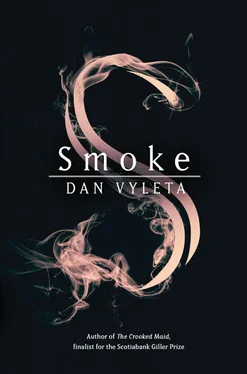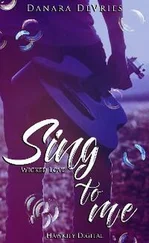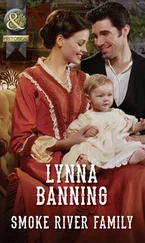“It’s illegal, that’s what it is. It’ll land you in jail.” The newspaper’s warnings come back to her, well-wrought phrases, warnings for the custodians of land and Crown. “What does it want, your union? Riots in the street, I suppose. Burnt manor houses, looted granaries, and free gin for every man, woman, and child. Anarchy! There’ll be famine before you know it.”
Jake drops his fist.
“We are fighting for proper insurance,” he answers with an odd sort of dignity. “When there’s an accident. Last month a man got cut by a snapped cable. Lost both hands. Manager wouldn’t give him a penny.”
He lifts up the lamp, opens it, blows out the flame.
“You must keep it off. There is shale gas in the area. Besides, the next shift will start soon. Light travels a long way down here, and colliers’ eyes are sharp.”
The darkness is so total the words are disconnected from their speaker. Jake no longer exists. Her own body has disappeared. All of a sudden, Livia is to herself just the breath of her lungs, the taste of her tongue between her teeth.
“No light?” she asks, her voice spilling out of her then evaporating in the dark. “How will we live?”
Jake’s answer has the simplicity of truth.
“You’ll get used to it.”
ф
Very soon she is alone.
It isn’t true, of course, but it feels like it. Abandonment. As though she has been left here to rot.
“Listen for the canaries’ movements. If they die, there’s gas in the room. But don’t worry, you’ll be just fine. I’ll send someone down to look after Thomas. At the start of the shift after next.”
It was Mr. Mosley who said it and why would he lie? But it was dark already when he spoke, and his voice had no body, no presence, sprang from no source. Like God’s, when He spoke on the day He made the world. But that’s blasphemy. No wonder though that the first thing He made was light. The dark is a lonely place. Livia has been here for no more than a thousand breaths. And already she knows it.
Of course, she is not alone. There is Thomas whom she heard being bundled into one of the beds. And Charlie, not five steps away. The wound has reopened, he has announced. Now he is busy at Thomas’s bedside, muttering to himself, trying to stem the bleeding in the dark. She fights with herself not to speak to him, distract him from his work. And so she waits, listens, drowns in the black.
The disorientation is total. She is, to her own senses, only her breath, the gurgling of her stomach. Her outside has dissolved, can be made present only by running her palms down the length of her skin, her face and neck, and (bashfully this) down the front of her dress, all the way to its hem, touching her sides, her knees, her calves, making herself real to herself and preserving her image, assembled through a hundred run-ins with a looking glass.
She bites her lip, and savours the reality of flesh and pain.
Time slips by, moves through the dark in slippered feet. In the absence of sight, other senses become vivid, fill the void with meanings true or false. At times it seems to Livia as though there are other people in the room, creeping around in silence, just inches from her, brushing her clothes, pulling faces in her sightless face. Sounds tug at her, have no origins other than the dark. It might be Thomas moaning, or Charlie’s mutter. Lovers embracing in the cave next door. A miner screaming far away as his hands are burnt by shale gas. The canaries’ brittle talons raking at the cage as they slowly suffocate.
For suffocate they must, since there is no air down here, just a cold, leaden thickness that presses on her along with the weight of the rock, hundreds upon hundreds of yards of rock, held up by some mouldy timbers, like matchsticks holding aloft the slab of a giant grave. Livia shudders, grows angry at her fear; forces herself to move, explore. She does not trust her feet, slides to the ground, needs to feel the floor with her bare hands to know it is there. On all fours then, like an animal, she crawls about, finds a wall, a shelf, a tin filled with something that might be food. Shortbread, oatcakes, hardtack? Her fingers feel stupid in the dark, unable to interpret texture, and her nose cannot make out the scent. She grabs a piece, too hard, feels it crumble and scatter on the floor. It is now that she starts crying. There is no one to see it, each sob silent, hidden, swallowed down. And yet Charlie finds her. She is alone, distraught, crumbs on her palm, sweat running down her back. The next moment his voice is in her ear.
“It’s eerie down here,” he says as though he’s sitting at the breakfast table, commenting on the porridge and toast. “Like being in a strange kind of church. One daren’t even speak.” He pauses but his voice does not change. “Are you afraid, Livia?”
“No.”
“Well, I am.”
She pictures his face as he says it, eyebrows arched in wonder at himself. Something touches her between her throat and her chest, reaches, searches, then hastily withdraws as though stung. Too late she realises it was his hand. Looking for hers. Embarrassed by what it found: the softness of her body.
It almost makes her laugh.
A moment later she reaches out herself, touches some part of him, clothed, his hip, perhaps, his knee, the narrow strip of his flank. The possibilities taunt her: how easy it would be to linger, in this absence of all sight. But she, too, withdraws her hand. They settle on a subtler sort of touch, sit leaning one against the other, shoulder digging into shoulder, until her legs fall asleep beneath her and she has lost all sense of where his body ends and hers begins.
“How long have we been here?” she asks.
“Ten minutes,” he answers. “Ten weeks. But shorter than a miner’s shift.”
A miner’s shift. How long is that? Eight hours? Ten? Twelve?
Help won’t be coming until it ends.
ф
When help does come, it bears a familiar voice. Familiar, but hard to place: calling quietly in the darkness and rousing her from sleep, Charlie’s jacket underneath her cheek and serving as her pillow. It is only when a match is lit — feeble, flickering, shielded by a glowing hand; and all the same blinding, radiant, a beacon from another world — that a face attaches itself to the voice. Immediately, all of Livia’s relief turns sour.
“You? What are you doing here?”
The voice that answers is as surprised as hers. And sulky.
“This is my home village! Half your servants hail from here.” Then: “If I’d known it was you I wouldn’t have come.”
It’s Lizzy, the scullery maid they let go for thieving on Christmas Eve. She is dressed in collier’s breeches and jacket, and is carrying a safety lamp; opens the glass and lights the wick, turns it down to a faint glow, sends it sweeping through the room.
“You are the talk of the village, you are. Ravished by Gypsies. Only some say that it was an elopement of sorts.” She sneers, is unguarded in her anger. “Who’s sick then? You look just fine to me.”
Her manner changes when the beam finds Thomas. The bandage is drenched, blood sitting on his face like a crab, red-black and many-legged, dredged up from the sea.
“It’s him! Mr. Mosley didn’t say. Just that they needed a nurse. I thought it was a collier. Or someone on the run. Hiding from the law.”
The last word is chased by a shadow: Smoke in the lamplight, falling through its beam like dust. It has no smell.
And just like that Lizzy’s anger leaves her again. She kneels by the bunk bed, begins to peel off Thomas’s bandages; wets a cloth from the mouth of a water bottle she has brought and sets to cleaning the wound. She beckons to Charlie to sit with her, asks him to hold her bag open for her.
Читать дальше












